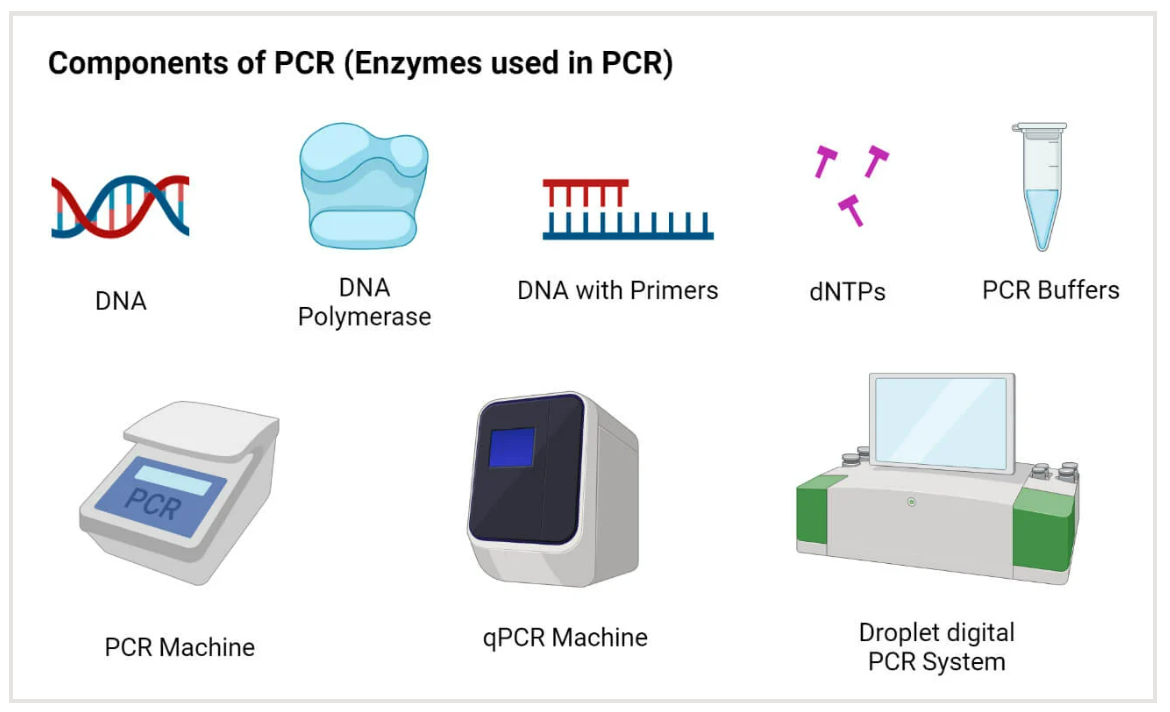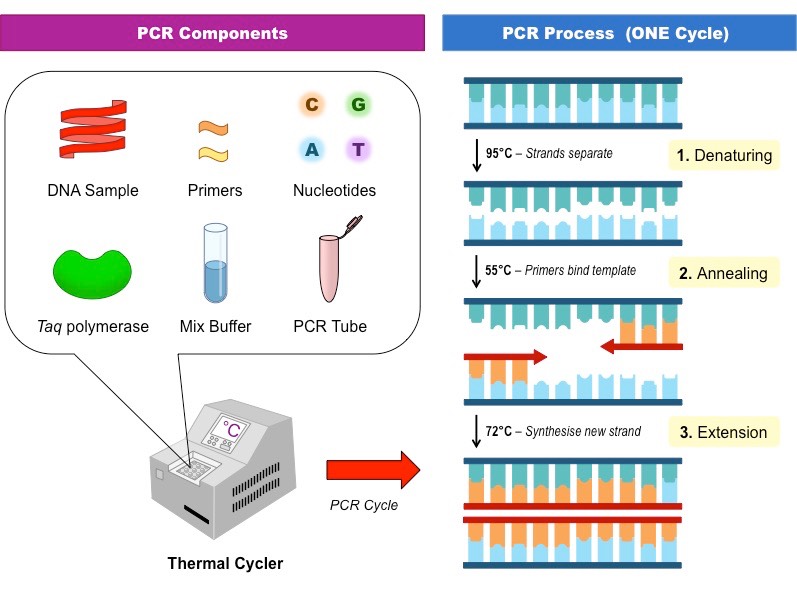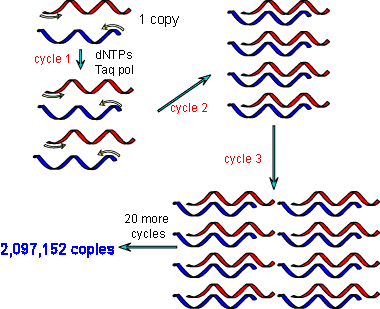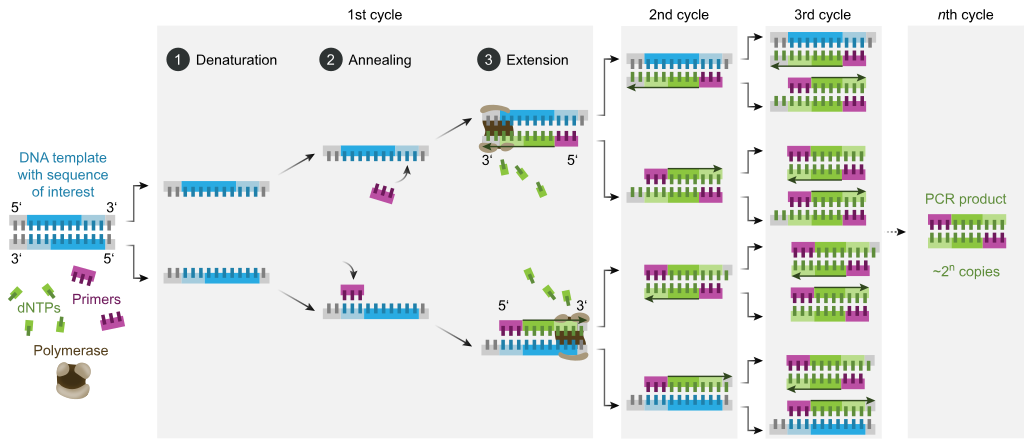Different types of PCR techniques in molecular biology
Polymerase chain reaction (PCR) technology is a fundamental tool in molecular biology to rapidly amplify DNA sequences. PCR technique is based on the principle of enzymatic replication of nucleic acids and is one of the main methods for DNA analysis.
Advantages and disadvantages of PCR technology
[vc_row][vc_column][vc_column_text]The polymerase chain reaction (PCR) is a quick, simple, and the most accurate molecular test to create unlimited copies of DNA from just one original strand. PCR technology has revolutionized genetic testing and has become an essential tool for anyone
A brief introduction to Polymerase Chain Reaction (PCR)
Polymerase Chain Reaction (PCR) was invented by Kary B. Mullis in 1985 for which he was also awarded the Nobel Prize for Chemistry in 1993. In 1993, the first FDA-approved PCR kit came to market (1). PCR is a fast,
Top three applications of Polymerase Chain Reaction (PCR)
Polymerase Chain Reaction (PCR) is a laboratory technique that rapidly amplifies tiny amounts of biological samples to millions or even billions of copies of a targeted nucleotide sequence. The entire process of PCR is automated by a machine called a





